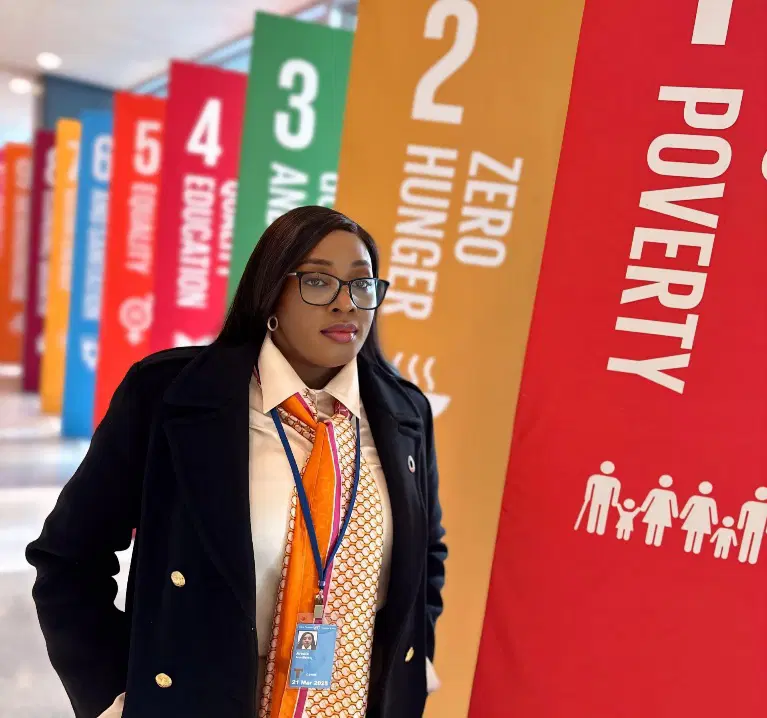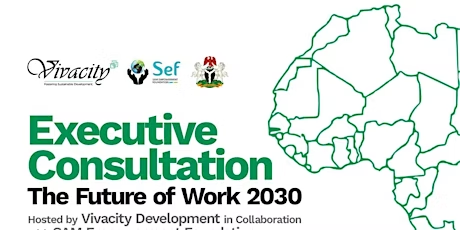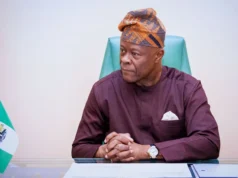In a pivotal moment for Nigeria’s labour market, Vivacity Development, in collaboration with the SAM Empowerment Foundation, will convene a high‑level Executive Consultation under the NigeriaWorks 2030 workforce transformation agenda. Scheduled for Thursday, July 17, 2025, at the Abuja Continental Hotel, this invite‑only event aims to chart a strategic roadmap to future‑proof employment in Nigeria.
The morning session, running from 9:00 AM to 1:00 PM, promises a series of thought‑provoking keynote addresses, expert‑led panels, and collaborative breakout workshops. Central to the discussion are critical topics like bridging the digital skills deficit, pursuing inclusive job creation—especially for youth and women—and ensuring economic resilience through green transformation—a vision emblematic of Nigeria’s goals for global competitiveness.
Eng. Oluwakemi Ann‑Melody Areola, CEO of Vivacity Development, emphasised the consultation’s purpose: “We stand at the crossroads of a rapidly evolving global employment landscape. This isn’t just a meeting—it’s a catalytic platform for influencing policy, guiding investment, and fostering collaborations that will drive Nigeria’s transition into a future‑ready economy.”

Initiative Overview of NigeriaWorks
NigeriaWorks 2030 is a flagship, multi‑stakeholder initiative targeting:
- Digital transformation: Accelerating digital literacy and equipping Nigerians with the skills demanded by emerging technology sectors.
- Green economy transitions: Expanding sustainable employment opportunities in renewable energy and environmentally conscious industries.
- Inclusive job creation: Prioritising women, youth, and underserved communities to foster equitable economic growth.
- Youth-centred innovation: Driving entrepreneurship, startups, and collaboration ecosystems tailored to Nigeria’s young demographic.
This platform aims to address deep‑rooted systemic issues while unlocking new economic potential. By facilitating direct dialogues between stakeholders—government, private sector, development agencies, and innovators—it seeks to craft a workforce ecosystem aligned with Agenda 2063 and the United Nations’ SDGs.
NigeriaWorks 2030 Workforce Initiative: What to Expect
- Policy Shaping & Investment Readiness
Policymakers will hear diverse perspectives on workforce readiness. Through interactive sessions, participants will co-create frameworks that align public policy with private investment. - Actionable Insights from Panels
Expert panels will explore transformative areas such as digital upskilling, sustainable economic models, and resilience in global shocks. Expect deep dives into real-world case studies and lessons from successful workforce programs. - Collaborative Roadmap Building
The consultation will culminate in developing a dynamic workforce roadmap. This blueprint will articulate practical steps for implementing strategic priorities over the coming five years. - Partnership Engagement
A key goal is forging long-term alliances that support implementation—linking investors with training providers, government bodies with innovators, and expanding outreach to rural and disadvantaged regions.

Why This Matters for Nigeria
- Addressing the Skills Gap
With automation and AI reshaping industries, many analysts cite Nigeria’s digital skills gap. Aligning training with market demands is essential to avoid escalated unemployment. - Leveraging the Green Economy
Across Africa, the green transition could create approximately 3.3 million jobs by 2030, with substantial opportunities in Nigeria’s solar and renewable sectors. - Youth Dividend
Nigeria’s rapidly growing youth population could be its greatest asset—if equipped with relevant skills. Formalising employment and supporting entrepreneurship can help avert social unrest linked to joblessness. - Global Competitiveness
Aligning with global targets like Agenda 2063 and SDGs, Nigeria can elevate its competitive position while attracting international investments in digital infrastructure, clean energy, and human capital.
Looking Ahead
While the Abuja consultation is invitation‑only, its ripple effects are broad. Policy recommendations and investment strategies developed there are expected to shape national employment frameworks and sectoral programs. A public‑private launch event is anticipated later this year, offering wider stakeholder engagement and public communication.
Momentum is already building. Earlier this year, the government announced ambitious initiatives—from creative economy job targets to technical vocational programs—that illustrate a systemic reorientation toward skills‑based growth. The NigeriaWorks 2030 consultation represents a consolidation of those efforts into a cohesive, long‑term workforce transformation strategy.
What to Watch
- Chief recommendations emerging from panel discussions on digital upskilling, green job creation, and gender inclusion.
- New partnerships signed during or after the event, signalling commitment to the roadmap.
- Policy shifts, such as government adoption of workforce frameworks and funding announcements.
- Next‑phase rollouts, including regional workshops, public‑private partnerships, and implementation funding.
The NigeriaWorks 2030 Executive Consultation in Abuja is both a milestone and a starting point. It represents an actionable commitment to human capital as the core infrastructure of national development. With continued collaboration and aligned execution, this initiative could fundamentally transform Nigeria’s workforce and economic trajectory by the end of the decade.
Join Our Social Media Channels:
WhatsApp: NaijaEyes
Facebook: NaijaEyes
Twitter: NaijaEyes
Instagram: NaijaEyes
TikTok: NaijaEyes





